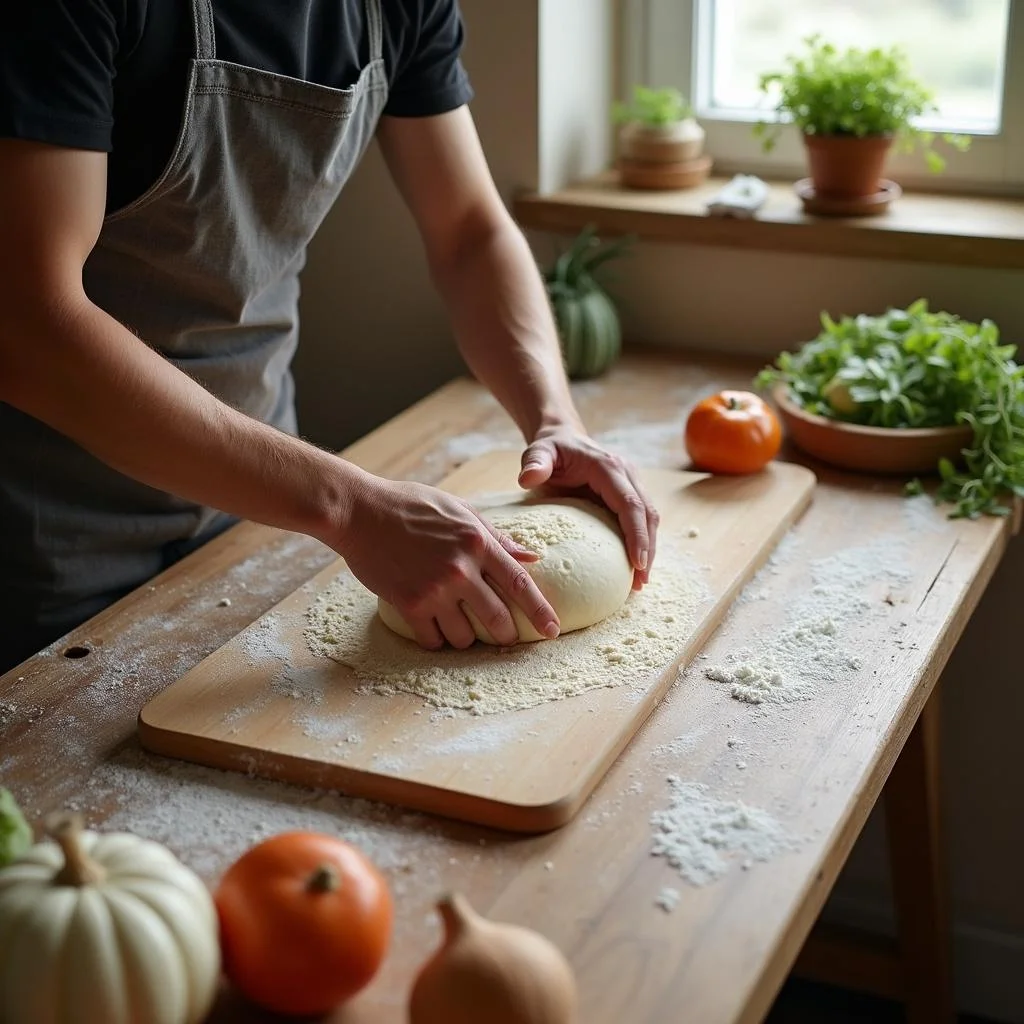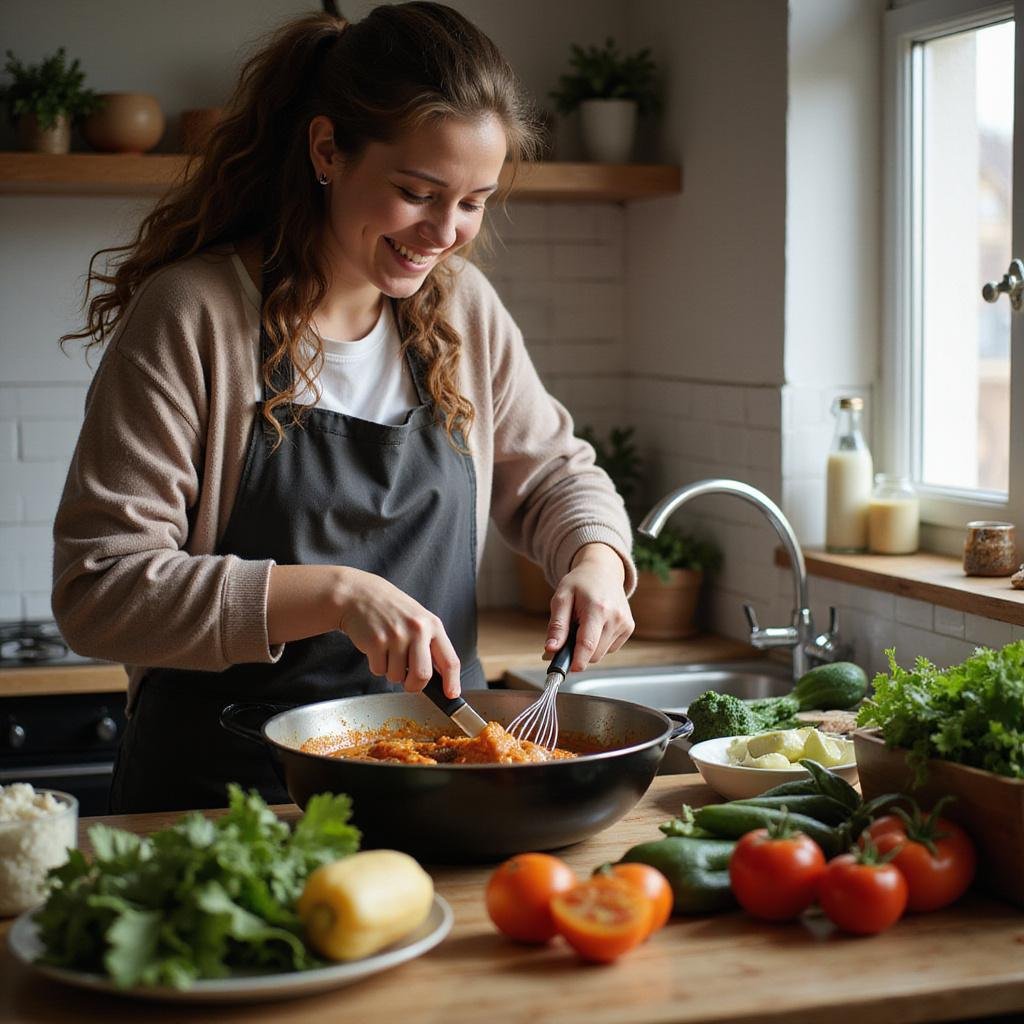1. Introduction
In today’s fast-paced and demanding world, burnout has become an increasingly prevalent challenge for many individuals striving to balance their personal, professional, and emotional well-being. The relentless pressure of deadlines, responsibilities, and emotional stress often leaves people feeling drained, disengaged, and overwhelmed. Fortunately, discovering effective strategies to combat burnout is essential for maintaining a healthy and fulfilling life. One surprisingly effective yet often overlooked remedy is cooking. This article delves into how cooking has helped me, and many others, to effectively overcome burnout, highlighting its profound psychological benefits and practical tips for incorporating this calming activity into your everyday routine. Whether you’re a seasoned home chef or a beginner, embracing cooking can be a transformative approach to mental wellness.
2. The Connection Between Cooking and Mental Well-Being
Engaging in cooking goes beyond simply preparing meals; it serves as a powerful therapeutic activity that can significantly improve mental health and emotional stability. When I first started dedicating time to cook intentionally, I noticed a remarkable shift in my emotional state—reduced stress, increased mindfulness, and a greater sense of satisfaction. The act of creating a meal involves various sensory and creative processes—chopping vegetables, measuring ingredients, and stirring—each of which contributes to a meditative-like experience. Incorporating tools like a Crock-Pot 7 Quart Oval Manual Slow Cooker can make meal prep even more effortless, allowing you to enjoy this calming activity without extensive effort. Additionally, exploring healthy options such as high-focus lunches without the crash, featured at MealsMom, can enhance mental clarity and sustained energy, making cooking an essential tool for mental rejuvenation.

3. How Cooking Helped Me Overcome Burnout: Personal Experience
My journey to overcoming burnout through cooking began during an especially stressful period at work when exhaustion and emotional fatigue threatened to take over my life. I desperately sought a way to rediscover balance and calm. One weekend, I decided to try baking bread—a simple yet deeply rewarding activity. As I kneaded the dough, I felt an immediate calming effect wash over me. The rhythmic motions of kneading, coupled with the inviting aroma of freshly baked bread filling my kitchen, created a soothing environment that uplifted my spirits. This small but meaningful activity became my sanctuary from mental exhaustion. Over time, I expanded my culinary pursuits—meal prepping, exploring new recipes, and experimenting in the kitchen became vital parts of my strategy to combat burnout. These activities, supported by essential tools like the Ninja Air Fryer Pro 4-in-1 for quick healthy meals or the Ninja Blender, Mega Kitchen System, enabled me to create nourishing dishes efficiently—helping to reduce stress and restore my mental momentum.
4. The Psychological Benefits of Cooking to Combat Burnout
Discovering the multifaceted psychological benefits of cooking has profoundly transformed my approach to mental health and daily stressors. Engaging in culinary activities provides a rich array of mental health advantages, making it an effective anti-burnout strategy. Some of the key benefits include:
- Stress Relief: Focusing on chopping, stirring, and measuring acts as a mindfulness practice and diverts attention from worries, helping to lower cortisol levels. Using kitchen gadgets like the Fullstar Vegetable Chopper and Spiralizer can make meal prep more engaging and stress-free.
- Creativity Boost: Developing new recipes, manipulating flavors, and customizing meals stimulate creative problem-solving, which can elevate mood and provide a mental escape from burnout.
- Mindfulness Practice: Cooking encourages presence and focus, promoting mindfulness that calms the mind. Tools like a KitchenAid Classic Series Stand Mixer can help facilitate mindful baking and cooking routines.
- Sense of Accomplishment: Successfully preparing and serving a meal fosters a sense of pride and achievement, combating feelings of exhaustion and emotional fatigue that accompany burnout.
5. Practical Tips to Use Cooking as an Anti-Burnout Strategy
If you’re thinking about incorporating cooking into your mental recovery plan, here are some practical tips to make it effective and enjoyable:
- Start Simple: Choose uncomplicated recipes that don’t require extensive prep time or complex ingredients. For quick, nutritious meals, consider using a TOSHIBA Microwave Oven for convenience.
- Set a Routine: Establish regular scheduled times for cooking, transforming it into a calming ritual that your mind and body can look forward to.
- Experiment and Explore: Venture into new cuisines or technique to keep the activity fresh and stimulating. A handy Clever Fox Recipe Book Spiral can inspire new culinary adventures.
- Create a Relaxing Environment: Play soothing music, ensure your kitchen is organized, and use aesthetically pleasing kitchenware like JoyJolt Borosilicate Glass Storage Containers to enhance your cooking experience.
- Share Your Creations: Cooking for loved ones or sharing meals can deepen social bonds and positively influence your emotional health, further alleviating burnout symptoms.
6. Incorporating Cooking into Your Burnout Recovery Plan
To maximize the mental health benefits of cooking, integrate it seamlessly into your broader self-care routine. Pair culinary activities with mindfulness practices like meditation or journaling to foster holistic mental rejuvenation. For instance, preparing nutritious meals with a versatile Mega Kitchen System can energize your body and mind. Remember, the goal is to create a mindful, enjoyable experience in the kitchen—transforming it into a sanctuary where stress melts away, and well-being blossoms.
7. FAQs About Using Cooking to Fight Burnout
How does cooking assist in combating burnout?
Cooking acts as an effective mental health tool by reducing stress through mindful activity, stimulating creativity, providing a sense of achievement, and encouraging emotional relaxation. Engaging in cooking produces a calming environment that helps restore mental energy and emotional balance, essential for overcoming burnout. To support this, tools like the Crock-Pot Slow Cooker or a Ninja Air Fryer make meal preparation more effortless, turning cooking into a soothing ritual.
Is cooking suitable for everyone as a mental health strategy?
Absolutely. Cooking is universally accessible, regardless of skill level or time constraints. Whether you’re a novice or experienced chef, engaging in culinary activities can serve as an effective way to relieve stress, boost mood, and prevent burnout. Even quick and simple recipes, like smoothies or salads, can offer significant psychological benefits. Additionally, incorporating simple activities such as meal prepping using a Cuisinart Bread Maker Machine can help streamline the process while providing therapeutic rewards.
What are some beginner-friendly recipes to help beat burnout?
Start with no-fuss, nutritious recipes like homemade soups, salads, fruit smoothies, or basic baked goods. These options are quick to prepare, satisfying, and customizable. For inspiration, tools like a Mega Kitchen System can help you explore new recipes with ease and confidence.
How often should I cook to experience mental health improvements?
Consistency is vital. Even cooking once or twice a week can boost your mood and reduce stress levels over time. Embedding this activity into your weekly routine makes it a sustainable part of your anti-burnout strategy. Remember, small but regular efforts, such as using a Microwave Oven for quick meals or prepping in advance, can have substantial cumulative benefits.
What if I dislike cooking or lack time?
That’s completely okay. You can adapt by engaging in related activities like meal planning, organizing your kitchen space, or trying quick, no-fuss recipes. The key is to find joy and mindfulness in small culinary activities that fit your schedule. Using tools like the Vegetable Chopper and Spiralizer can make prep easier and more fun, turning cooking into an accessible form of self-care.
In conclusion, cooking is more than a daily necessity—it’s a powerful, accessible tool for beating burnout. By engaging your senses, fostering creativity, and practicing mindfulness, you can turn your kitchen into a sanctuary of calm, joy, and mental renewal. Embrace cooking not just as a way to nourish your body, but as a path to revitalizing your mind and restoring your emotional balance. Start today, and let your kitchen become your haven of healing and happiness.

